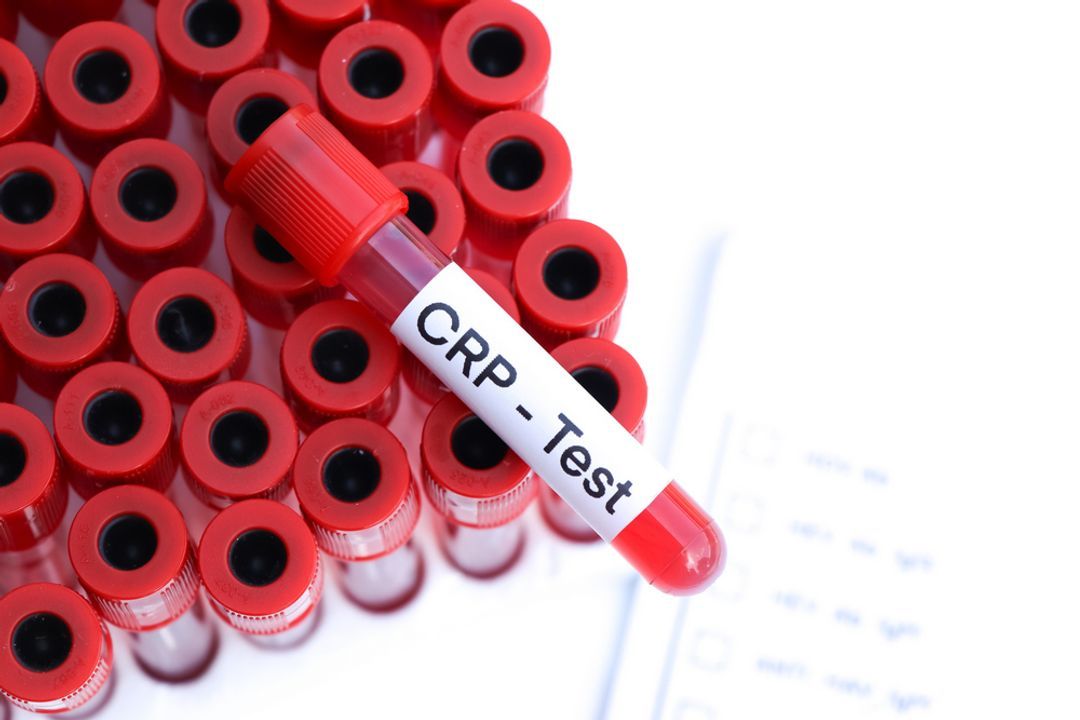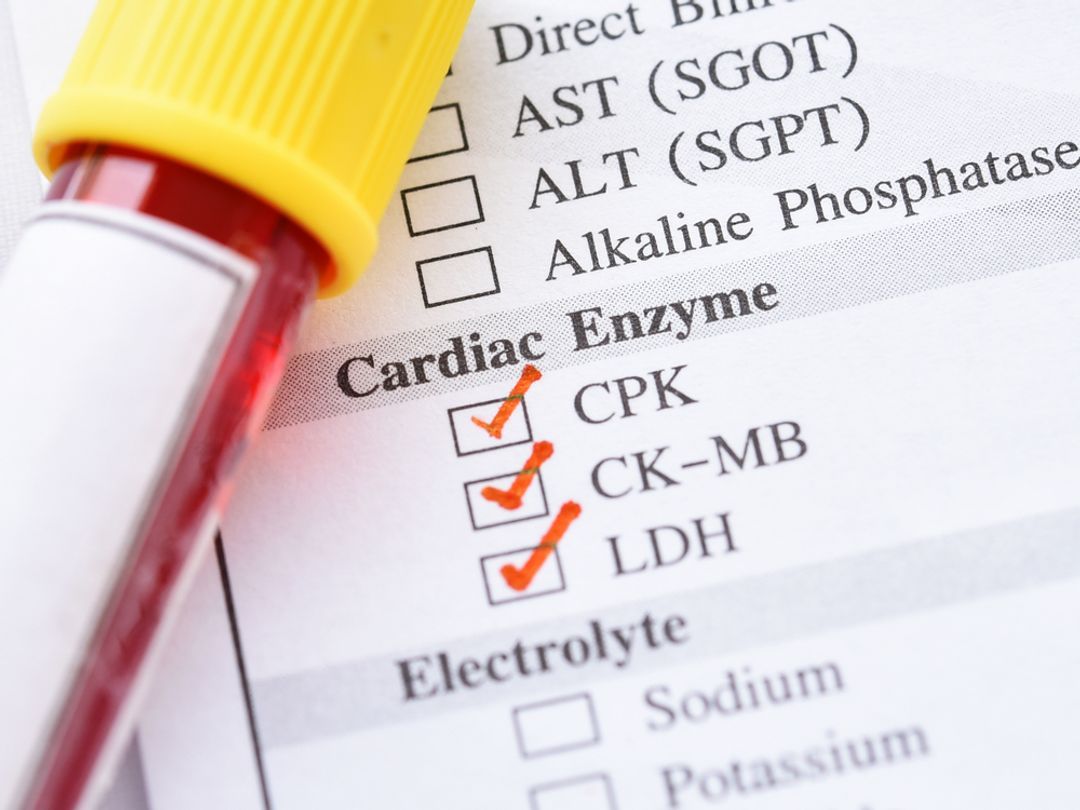A General Review on How to Check and Diagnose Heart Inflammation
How do you test for heart inflammation? What does the heart inflammation test procedure look like? Check out this article to discover more.
Key Points
-
Heart muscle inflammation occurs as a result of a heart injury and/or infection.
-
The presence of inflammation in the heart can result in significant health issues, such as coronary heart disease, heart failure and an irregular heartbeat (also referred to as arrhythmia).
-
It is crucial to identify it early to prevent any long-lasting harm to the heart tissue. With that in mind, tests involving blood and imaging can be conducted to assess
Currently, there is an abundance of information regarding inflammation and its detrimental impact on the body. Recently, heart inflammation has been in the news as a rare consequence of COVID-19 and the COVID-19 vaccination. Nonetheless, this article seeks to address general queries surrounding inflammation of the heart and the many kinds of blood tests used by physicians to diagnose the condition and facilitate a proper treatment procedure.
What Is Heart Inflammation?
Heart muscle inflammation is a natural immune response to an infection or injury to the heart, causing pain as well as redness and swelling of the heart tissue. Inflammation may also adversely impact the heart's lining or valves, the heart muscle or the nearby tissue.
Heart inflammation can occur suddenly (i.e., acutely), be recurrent or even chronic. In the majority of cases, people recover without any lasting effects, but severe inflammation can lead to the scarring of the heart muscle. This damage, in turn, forces the heart to work harder to pump blood and oxygen, resulting in the heart muscle becoming larger and weaker over a prolonged period. Occasionally, heart inflammation may also have an effect on the heart's electrical system, causing an abnormal heartbeat (also referred to as arrhythmia).
Heart inflammation can occur in different regions of the heart:
-
Endocarditis affects the inner lining of the heart chambers and valves, controlling blood flow between them.
-
Myocarditis impacts the muscular tissue responsible for heart pumping.
-
Pericarditis affects the protective sac enveloping the exterior of the heart.

How Can Heart Inflammation Be Identified via Blood Tests?
Diagnosing heart inflammation is challenging because its symptoms, such as chest pain, fatigue, shortness of breath and fever, can overlap with other medical conditions. The current diagnostic tools for heart inflammation may also be inaccurate. While magnetic resonance imaging (MRI) or X-rays may detect heart abnormalities, and electrocardiogram (ECG) investigations can provide nonspecific clues, the gold standard for diagnosis of heart inflammation is heart biopsy which is an expensive, invasive and potentially hazardous procedure.
There are blood tests that are typically used to evaluate heart conditions, including:
C-Reactive Protein (CRP) Test
The liver produces C-reactive protein (CRP) as a response to inflammation, and its increased presence in the blood may indicate inflammation.
In particular, when the arteries of the heart are inflamed, the level of CRP can be high, indicating a greater risk of a heart attack. Other than that, the level of CRP can indicate the likelihood of developing cardiovascular problems since the development of atherosclerosis and the deposition of cholesterol are linked to chronic inflammation in the vessel walls. As a result, patients with atherosclerosis tend to have higher CRP levels than those without it.
hs-CRP test is even more sensitive and it can determine smaller but still elevated levels of protein and indicate the probability of heart disease and stroke.

Erythrocyte Sedimentation Rate (ESR) Test
The erythrocyte sedimentation rate (ESR), also referred to as the sed rate, is a blood test used to detect inflammation in the body. The test involves placing a sample of your blood in a tall, thin tube, where red blood cells (scientifically termed erythrocytes) settle to the bottom. The clumping of these cells due to inflammation causes them to settle more rapidly as they become heavier than individual cells. The ESR test measures the distance these cells fall in one hour, and the greater the distance, the more significant the inflammatory response.
Regardless, it is important to bear in mind that the ESR test is considered to be nonspecific because it is not able to diagnose specific illnesses but rather offers additional information about the presence and degrees of inflammation.
Cardiac Enzyme Tests
When the heart experiences an injury, it releases multiple enzymes such as troponin, creatinine phosphokinase (CPK) and myoglobin (MB), in which higher levels indicate heart tissue injury. This test is done In cases where a heart attack is suspected or if there are indications of a heart injury or inflammation.

How Is Heart Inflammation Treated?
Even though many mild cases of heart inflammation resolve without medical intervention, anti-inflammatory treatments, such as high-dose aspirin, colchicine and steroids, may be employed to alleviate the inflammatory response within the heart. In some situations, doctors might utilise biological therapies that directly target the immune system and disturb the inflammatory process.
Why Is GlycanAge an Excellent Addition to Your Heart Inflammation Management Routine?
The gradual accumulation of damage in your heart can result in chronic inflammation, which can cause an overactive immune response, hasten the ageing process and increase the probability of age-related illnesses.
Even though the symptoms of chronic inflammation may only manifest in later stages, the GlycanAge test can anticipate future health issues before they become noticeable. By evaluating the extent of chronic inflammation in your heart and body as a whole, which affects the biological age of cells, tissues and organs, the test allows individuals to make appropriate lifestyle adjustments to decrease inflammation and decelerate the ageing process.
If you are embarking on your wellness journey, it is recommended to take a GlycanAge test to ascertain your biological age. Two tests taken over time can provide valuable data to track your progress and assess the effectiveness of lifestyle modifications. Furthermore, personalised plans are available for biohackers and professional athletes committed to long-term health enhancement.
All packages come with affordable payment options and a complimentary consultation with a qualified healthcare professional and/or scientist who aid in interpreting the results and creating a tailored action plan to combat ageing. Take charge of your health right now by purchasing your GlycanAge biological age test.
Concluding Thoughts
Similar to how we all aim to regulate cholesterol, blood pressure and blood glucose levels, we must also focus on reducing heart inflammation. With that in mind, it is imperative for all of us to make a conscious effort to minimise the risk of incurring chronic inflammation.
Other than that, if you encounter inexplicable symptoms, such as shortness of breath or stabbing pain in the chest, seeking prompt medical attention is critical. This is because a certified physician can assess your symptoms to establish whether they are caused by heart inflammation or another ailment.
Frequently Asked Questions (FAQs)
What is heart inflammation?
Heart inflammation is the response of the heart to injury or infection, occurring abruptly for some individuals and gradually for others. The severity of inflammation and the resulting symptoms are influenced by various factors and underlying causes. In some cases, the symptoms can be severe, while in others, they can be relatively mild or even absent.
What does heart inflammation feel like?
Individuals who have heart inflammation frequently experience symptoms such as fatigue, chest pain, shortness of breath or palpitations. In essence, these symptoms might develop steadily over time or occur all of a sudden. Meanwhile, those who have progressed to more severe stages of heart inflammation could exhibit symptoms of heart failure.
References
https://www.frontiersin.org/articles/10.3389/fcell.2020.00192/full
https://www.ncbi.nlm.nih.gov/pmc/articles/PMC3614623/
https://www.ncbi.nlm.nih.gov/pmc/articles/PMC4497511/
https://www.ahajournals.org/doi/10.1161/CIRCHEARTFAILURE.120.007405
https://www.nature.com/articles/s41569-020-00435-x
https://www.nature.com/articles/s41591-022-01689-3
https://www.mdpi.com/1422-0067/23/21/12906
https://www.ncbi.nlm.nih.gov/pmc/articles/PMC3529645/
https://www.frontiersin.org/articles/10.3389/fped.2019.00242/full
https://journals.lww.com/md-journal/fulltext/2020/10090/incorporating_the_erythrocyte_sedimentation_rate.41.aspx
https://jamanetwork.com/journals/jamapediatrics/fullarticle/2748688
https://www.ncbi.nlm.nih.gov/pmc/articles/PMC6957084/
https://www.ncbi.nlm.nih.gov/pmc/articles/PMC3074795/
https://www.ahajournals.org/doi/10.1161/CIRCULATIONAHA.119.040631


